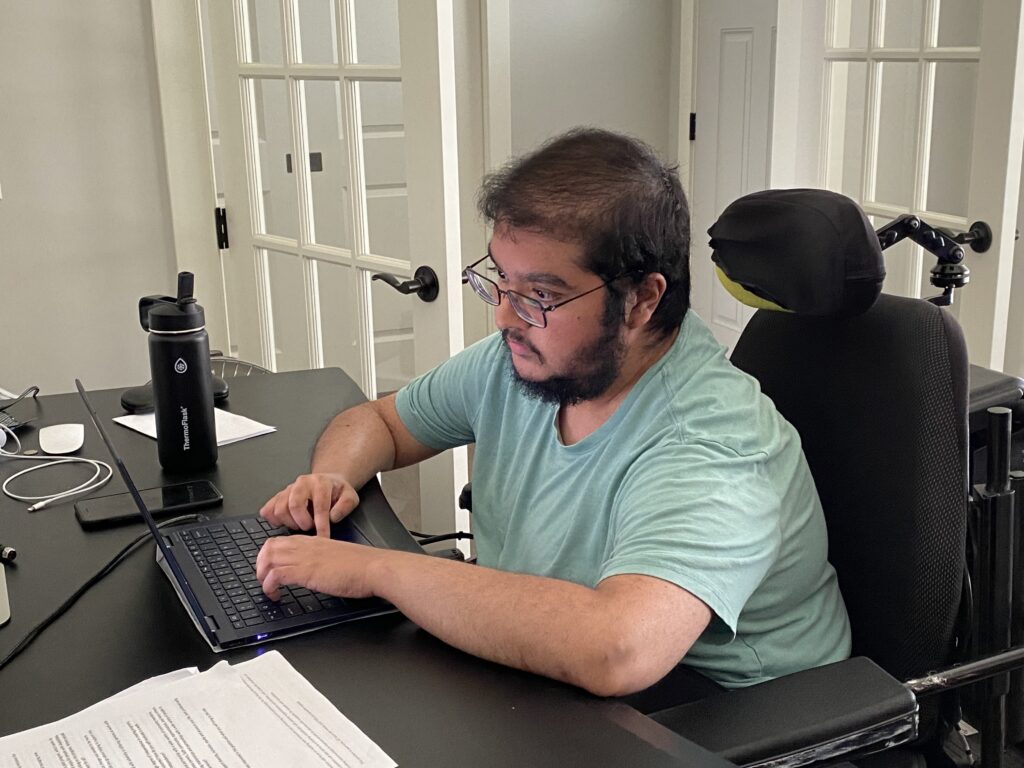 My name is Sumukha Terakanambi, and I am a Policy Consultant with the Minnesota Council on Disability. For the last few years, my goal has been to gain full-time employment as a disability and healthcare policy advocate. In addition to giving me opportunities to pursue what I am interested in, I view employment as a path to achieving more independence, participating in the community, and building financial security. As a person with a disability, I have the desire and ability to work like anyone else. Unfortunately, I – and so many others with disabilities – still face negative stereotypes and systemic barriers when searching for employment.
My name is Sumukha Terakanambi, and I am a Policy Consultant with the Minnesota Council on Disability. For the last few years, my goal has been to gain full-time employment as a disability and healthcare policy advocate. In addition to giving me opportunities to pursue what I am interested in, I view employment as a path to achieving more independence, participating in the community, and building financial security. As a person with a disability, I have the desire and ability to work like anyone else. Unfortunately, I – and so many others with disabilities – still face negative stereotypes and systemic barriers when searching for employment.
This is the fifth in a series of seven blog posts exploring the major barriers to employment for people with disabilities across the state.
- An Overview
- A Lack of Information about Supports
- Stereotypes and Denying Accommodations
- A Lack of Accessible Transportation
- Support Programs that Discourage Work
- A Lack of Legal Supports
- Conclusions
Employment Disincentives
Many employed people with disabilities rely on support programs like MA-EPD (Medical Assistance for Employed Persons with Disabilities) to provide essential healthcare services. These services include home and community-based waivers that provide:
- PCA (Personal Care Assistant) services
- Transportation
- Employment supports
- Home modifications
- Assistive technology
During the last legislative session, lawmakers removed asset limits for MA-EPD. Removing this requirement was undoubtedly a huge win for the disability community. However, other program requirements still discourage people from working and earning money.
Many recipients find MA-EPD’s premiums unaffordable. Brittanie Hernandez Wilson, the Equity and Justice Director at Arc Minnesota, talked about the financial stress she felt paying the premiums. “It got to a point where I was paying $600 a month just to work. I could not afford my rent, car payments, and the basic things. I was in a situation where if I was forced to pay the premiums, I would have had to quit my job.”
Brittanie also told me how the renewal process can be another burden. Renewals require recipients to provide various financial documents showing proof of income and assets every six months. Gathering these documents can be a time- and energy-intensive process.
Medical Assistance (MA) is the only program covering home and community-based supports that are too costly to pay for out of pocket. Too often, people with disabilities must choose between employment and the supports that programs like MA provide.
Needed Reforms
We need several reforms to make MA-EPD a quality program for people with disabilities. These include:
- Eliminating the MA-EPD premium requirement. This is a policy priority for disability advocates and legislators who support disability policy in the 2025 legislative session.
- Changing the renewal requirement for MA-EPD. Requiring people to send proof of income and assets is an administrative burden. Lawmakers passed legislation that requires renewals annually instead of every six months.
Conclusion
Our current disability services system makes it difficult for people with disabilities to focus on excelling in their careers. Removing administrative burdens from these supports will go a long way in making the lives of people with disabilities easier. It will encourage more people with disabilities to seek out employment opportunities.